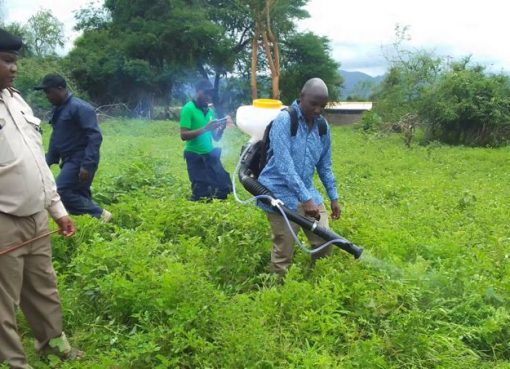The Directorate of Occupational Safety and Health Services (DOSHS) will conduct a survey of flower farms in Naivasha to ensure that thousands of workers employed in the horticultural sector work in safe environments.
DOSHS Deputy Director Andrew Muruka said legal action will be taken against firms found not to have adhered to the minimum stipulated injury and chemical exposure preventive measures.
Speaking when he launched the 2018 Baseline Survey Report for Nakuru County on Workplaces, Hazardous Occupations and Equipment and Major Hazard Installations, Mr Muruka noted that there were emerging accounts of workers falling sick annually due to unsafe, unhealthy and unsustainable working conditions in industries.
“We will initially start the probe on two flower farms within the South Lake region. All manufacturing concerns, industries and farms that expose workers to chemicals must ensure that materials used have safety data sheet,” said Muruka.
DOSHS Deputy Director’s remarks came in the wake of findings of a survey which revealed that more than 10,000 workers fall sick each year, due to chemical exposure and poor working conditions in the flower industry.
The domestic horticulture sector is key to Kenya’s economy as it earned Sh153 billion in 2018 emerging the country’s second highest forex earner behind tourism. This represents a 33 percent increase against earnings in the previous year of Sh 115 billion.
Local flower industry has however through the Kenya Flower Council defended itself and maintained that workers are protected from pesticide poisoning and strict standards are enforced.
The study says most of the affected workers suffer from serious chronic effects of occupational pesticide poisoning.
The report dubbed ‘The Ugly Picture of Pesticides Poisoning in Kenyan Flower Farms’ that was produced after a two year research in 21 flower farms claims that one percent of deaths in the flower farms are caused by over 300 different chemicals sprays.
“It is our mandate to ensure that neither chemical poisoning nor preventable industrial accidents do not rob Kenyan workers of good health or leave them vulnerable to a lifetime of debilitating ill health,” said Muruka.
The Deputy Director said the directorate will work with other state agencies such as the Kenya Bureau of Standards (KEBs) in ensuring compliance of various safety standards which every flower farm was supposed to meet.
“All workers handling chemicals must be trained on their safe use. There has to be adequate supervision in the use of chemicals to stop any exposures. We are working with all industries to ensure safety standards are observed,” noted Muruka.
He said that the Directorate was also enforcing a legal requirement to the effect that those injured in work places be compensated within 120 days.
Muruka observed a large number of industries were not registered with the Directorate which he said was a criminal offence.
By Anne Mwale and Dennis Rasto




